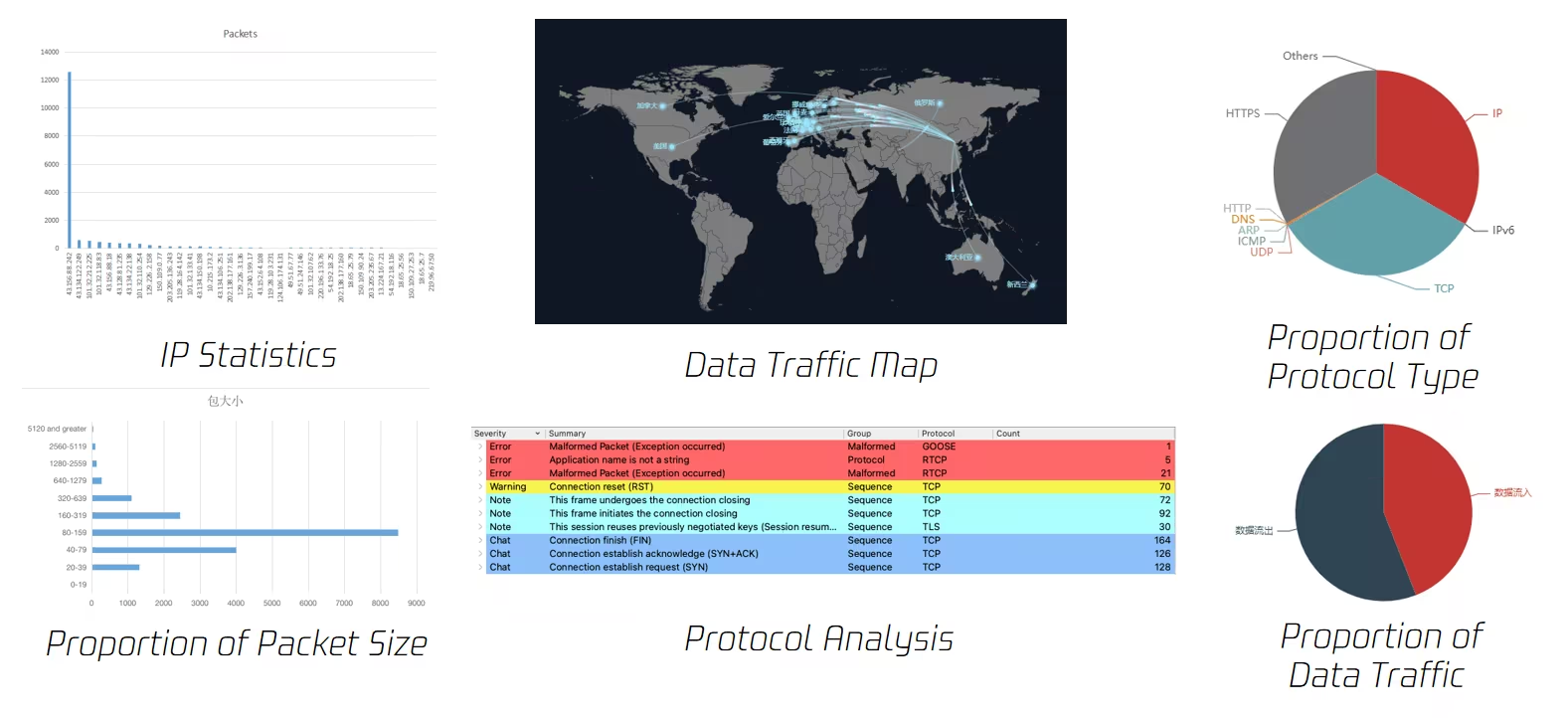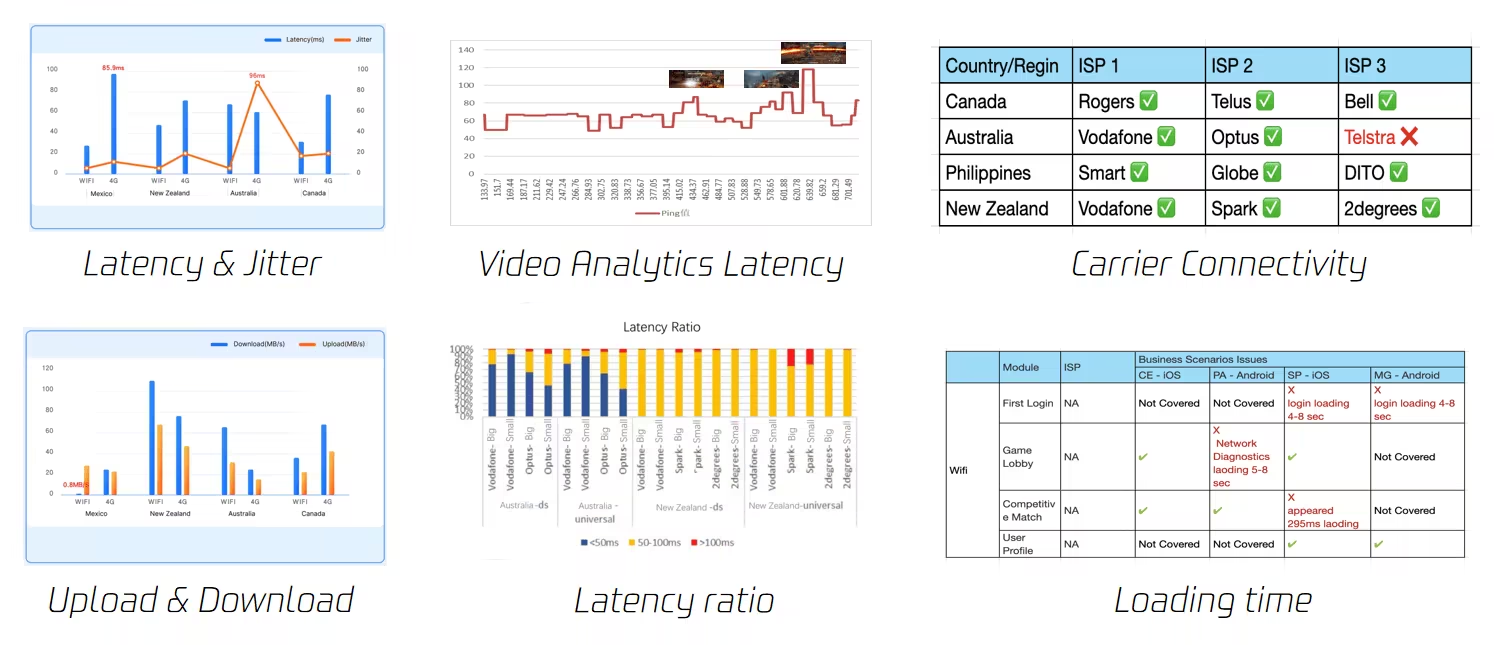Create Lightning-Fast Apps: App Network Testing
How to provide a seamless user experience in today's digitally connected world? Network performance of your apps plays a critical role, especially when targeting a global audience.
What is Local App Network Testing?
As the name implies, local app network testing evaluates an application's network performance, including communication with servers, network latency, bandwidth, transmission speed, and overall connection quality. The purpose of this testing is to ensure that the application can function optimally in various network conditions, providing a seamless user experience.
Why is Local App Network Testing Necessary?
By testing your app's network performance, you can identify potential issues such as jitter, unstable or slow network, latency, packet loss or other network-related challenges.
Jitter: Jitter refers to the variations in delay between data packets arriving at their destination. It is the inconsistency in the time it takes for packets to travel from the sender to the receiver. Jitter can occur due to network congestion, route changes, or other factors that cause fluctuations in the transmission path of data packets.
Network Stability: Network stability is the consistency and reliability of a network connection, ensuring that the connection remains uninterrupted and maintains a steady flow of data. Issues with network stability can arise due to hardware failures, software bugs, network congestion, or physical factors such as interference or signal degradation.
Speed: Network speed, the rate at which data is transmitted over a network, is a critical aspect of network performance. Speed issues can occur due to network congestion, limited bandwidth, hardware or software issues, or signal interference. A slow network can lead to user frustration and potential churn, emphasizing the need for optimal speed.
Latency: the time it takes for a data packet to travel from the sender to the receiver, significantly affects real-time applications like online gaming or video chatting. High latency can cause lags that disrupt the user experience. Latency can occur due to network congestion, long-distance transmission, or inefficient routing. Reducing latency is crucial for maintaining a responsive and real-time user experience.
Packet Loss: Packet loss refers to the failure of data packets to reach their intended destination. Packet loss can occur due to network congestion, hardware failures, software bugs, or signal interference. Losing data packets during transmission can lead to interruptions and degrade the quality of service.
Some key reasons to conduct app network testing
-
Diverse Network Feasibility: By testing your app in various network environments, this can ensure your app performs well across different regions and network conditions, including 3G/4G/5G/WiFi, weak network environments, etc.
-
Optimal User experience: Optimizes network performance, enhancing user satisfaction and increasing the likelihood of positive reviews and recommendations, as these are very important advertisement for a global game.
-
Issue Diagnosis: Identifies and resolves network-related issues, ensuring a smooth and consistent user experience.
-
Enhancing Capability: Identifies bottlenecks and enables optimization, which are very important in improving your app's competitiveness in the market.
Our Experiences
At WeTest, we are dedicated to delivering exceptional service that caters to diverse customer needs and efficiently fulfills their requirements. We specializes in the early detection of overseas network issues by assessing various metrics such as:
- Network stability
- Speed
- Latency
- Packet loss
This includes:
- Video playback smoothness
- Game stability in different network environments, such as 3G/4G/5G/WiFi
This helps you understand how your application operates locally, allowing you to make necessary adjustments and optimizations for a seamless gaming experience across various regions.

Network experience test shows a series of network-related data such as latency, upload & download speed, loading time, high-latency scenarios, and more, thus you can have a comprehensive understanding of the local network situation and product performance:

Common network issues we encountered
We've encountered a variety of issues during our network testing experiences of popular games. These challenges have provided valuable insights and helped us improve our services. Here are some common types of problems we've faced:
-
Matchmaking Issues: Problems with entering game rooms even after the match timer reaches zero, often due to domain name resolution failures.
-
Geolocation Errors: Clients mistakenly identified as being outside the testing region, causing them to be blocked from accessing the game.
-
Latency Reporting: Inaccurate latency data due to the inclusion of factors like the client's scene loading time
-
Packet Loss: Severe packet loss in certain regions and challenges associated with handling large and small packets in the game.
-
Download Speed: Slow game download speeds in certain regions, leading to longer than expected download times.
-
Connectivity Issues: Problems with unreachable ping and high latency for certain network operators.
Our advantages
- Reliable and Secure: All tests are conducted in a reliable and secure manner to ensure program information confidentiality and compliance.
- Expert and Thorough: Our team of experts provides comprehensive network performance evaluations and diverse testing environments.
- Cost-Effective: We offer customized testing solutions and professional technical support at competitive prices.
- Real-time communication and fast delivery
- Original file and video traceback
- Guaranteed quality and quantity, with free retesting if necessary
Read the full blog → Local App Network Testing
